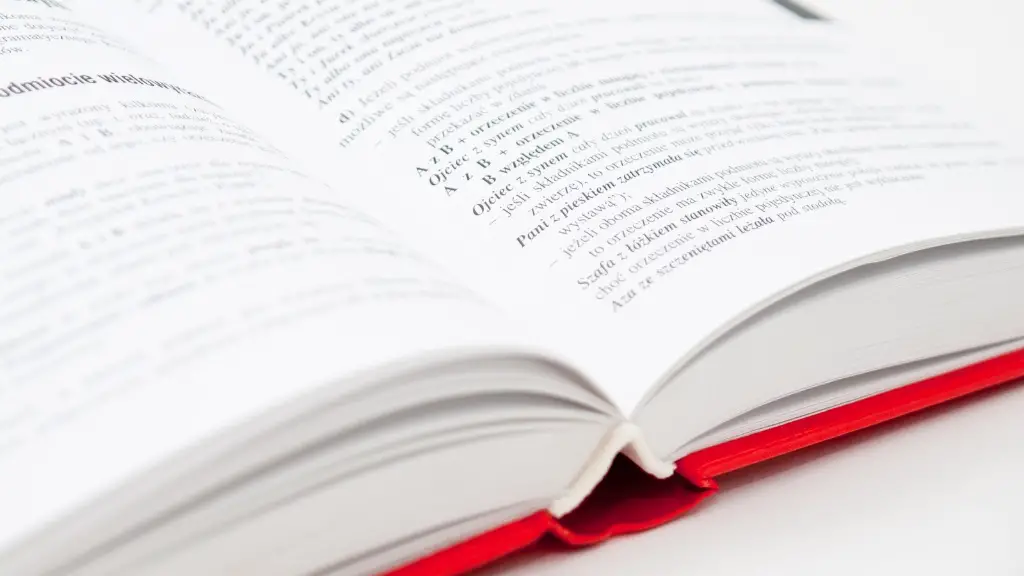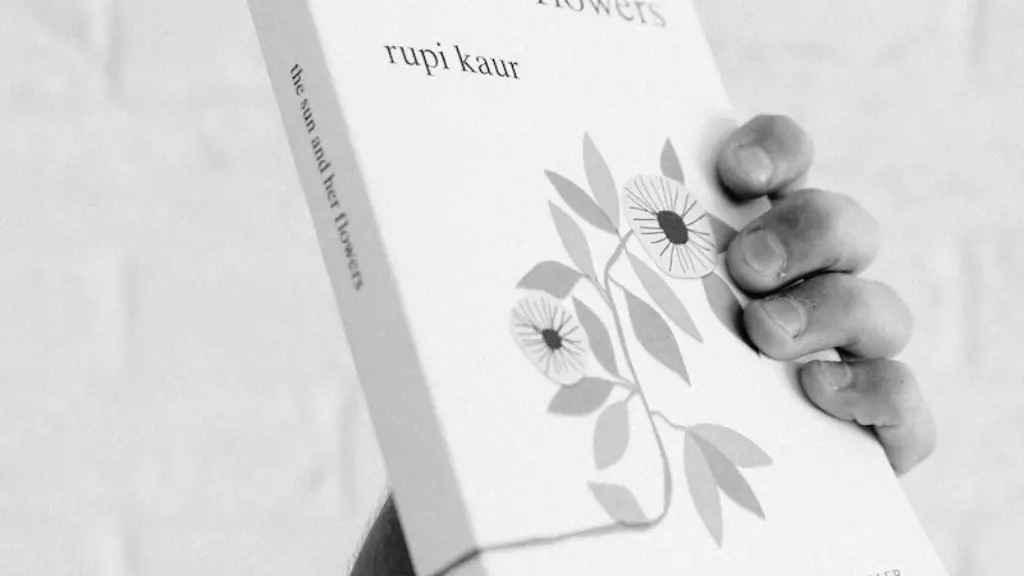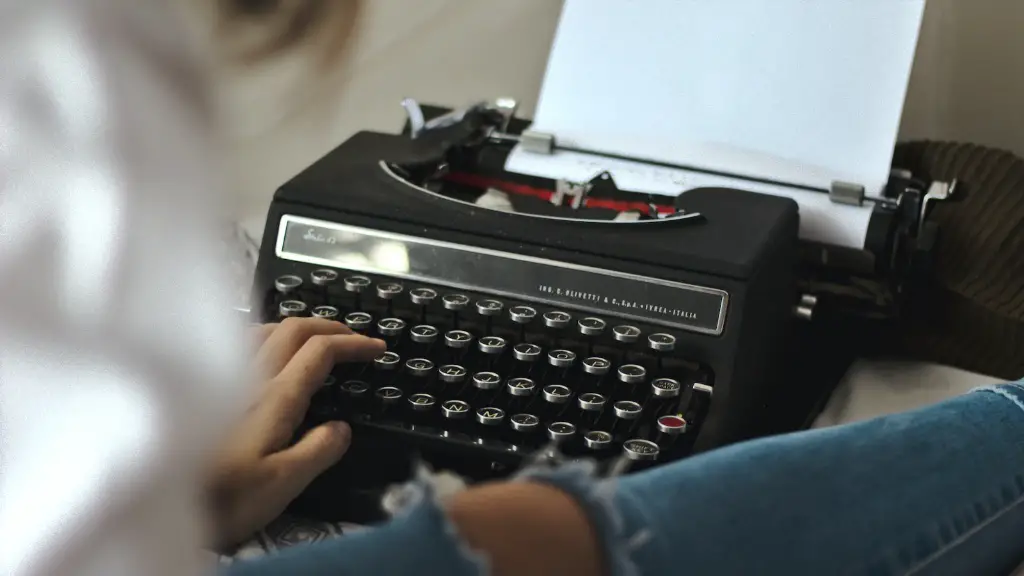The notion that poetry, or any form of literature, can effect change in the world, is a concept that has become increasingly relevant and topical in recent years. Particularly in times of conflict, when powerful messages need to be heard, and minds and hearts challenged, poetry can provide the perfect platform for voicing discontent and driving change.
This debate has been energized by the role of certain renowned poets, such as Maya Angelou, who became a figurehead for the African-American civil rights movement during the 1960s and 70s. Her work was as powerful as it was emotive, and resonated with many people during a period of great upheaval. That such words can inspire progress, and foster change, is an idea that has become accepted by many, who now hold poetry in high regard for its ability to speak for those who have no voice, and to challenge those in power.
The effectiveness of poetry as a tool of influence and the power it wields, is discussed extensively in the works of writer and scholar, Matthew E. Lucas. In his study ‘Poetic Politics: The Politics of Poetry in the 21st Century’, Lucas identifies a number of key themes that are prevalent in the work of poets, who strive to create change in their world. These include; protest, war and justice, and in his book, Lucas offers a deep insight into the creative potential that poetry can possess when invoking powerful messages.
Undoubtedly, poets tend to express intense emotions through their work, and can reach people in ways other forms of media cannot. This can be, in part, attributed to the fact that poetry allows for a greater degree of expression than other forms of literature and can effectively convey an individual’s point of view with a clarity and potency that can often be missing from other platforms.
Furthermore, the directness of poetic prose, combined with its expressive qualities and its ability to represent a unique perspective, can be incredibly powerful in conveying messages of change from a grassroots level. Protest poetry, for example, is an effective way of allowing individuals to communicate their message to a large audience and can be an extremely useful tool in inspiring movement.
For example, during the 2017 Grenfell Tower fire events in London, young poet, Suhaiymah Manzoor-Khan, recited her poem ‘This is Not a Humanising Poem’. The shift in focus of her piece towards a unified strength of resistance, allowed politics and feelings of togetherness and justice to surface, as a powerful reminder that such tragedies should never occur again.
Socio-Political Impact
Clearly, the socio-political dynamics of certain societies can be altered by the sentiment of a poem and its relevance to the current climate of a potentially volatile society.
Any poem capable of creating social change will typically be surrounded by political themes. As a result, a poet has the opportunity to (re)define the values of a society and in some cases, influence policy.
Shahidah Omar, lecturer in Applied Political Theory at the University of Graz in Austria, is an expert in the field of modern poetry and the impact it can have on a country’s political affairs. She argues in her journal article, ‘The Poetics of Social and Political Change’, that poetry can be a powerful force for political action as it can creatively challenge traditional ideologies, thereby offering a refreshing new perspective on current occurrences.
For instance, poet, activist and scholar, Nourbese Philip, has often used her work to analyse the nuances of colonialism and its effect on various societies. Her poem ‘Zong’, for example, explores the effect of the slave trade on the African population and the harshness of slavery. By raising awareness of the atrocities associated with historical events such as this, Philip is encouraging social and political change, through the medium of poetry.
The Immediate Wave of Change
Clearly, poems can be effective both in driving an urgent wave of change and in changing the general outlook of society in the long run. In some cases the effect of a poem can be immediate.
For example, at the start of the 2019 Sudanese protests, a rap poem written by Abdel Aziz AlHelou, a 17 year old Sudanese poet, inspired many people to join the rally. His poem, ‘Tear Gas’, aptly termed itself an ‘anthem for a revolution’ and called for an end to the government of Omar al-Bashir. His words, although never spoken during the actual rally, motivated many people to fight for the cause and in no time, the protest quickly escalated and the demand for a new regime was answered.
The power of AlHelou’s poetry not only revolutionised the Sudanese people and pushed their fight for freedom, but it stirred up many emotions and sentiments of similar situations in other countries with similar political regimes, who now perhaps have hope of creating their own revolution.
The Cultural Shift
In regards to a cultural shift, poetry can be used to challenge the existing structures of society, to develop a more progressive and equal culture.
Grace Nichols, a Caribbean poet in the UK, writes about the issues of belonging, shared family heritage, identity and race. Her award-winning poem ‘Praise Song for my Mother’ bridges the gap between her heritage and her home in the UK, by exploring the cultural divides present in both countries. As a result, the poem speaks to multitudes of people who, in some capacity, share a similar cultural identity.
Moreover, her work explores racial issues, by reflecting on her own experiences of being an older Caribbean woman, who is often marginalised by society. This helps to foster a level of understanding and empathy, which can encourage people to think more carefully about racial issues and create a cultural shift in attitudes.
Poetic Activism
Poetry, like other forms of protest, can be used to raise awareness and engage with a cause. This was defined by Stefano Harney, a Senior Research Fellow at the Centre for Research Architecture (Goldsmiths College, University of London), as ‘poetic activism’.
Harney argues that through poetic activism, poets can explore situations and use their work to engage with world politics. An example of this is poet and author, Ewa Chrusciel, who has used her work to aid the Syrian refugees in their cause by raising money for charities.
Here, Emilio Carballido’s ‘Refugee Poem’ proves effective in articulating the gravity of the situation, by describing the perilous journeys undertaken by refugees – “I sailed trees, defeated miles” – a reference to the use of boats in their crossing.
Through poetic activism, those in need can therefore serve as a reminder that human rights are universal and implicit, and provide a platform for people to advocate for justice and support causes that require attention.
The Art of Self-Expression
In truth, poetry can bring to light many topics that are often overlooked in society nationally and internationally.
For some, poetry can become an outlet for expressing self-empowerment and identity. For example, Onyebuchi Nkechi’s poem ‘Self Love Acceptance’ seeks to lift the veil from the issues of self-image and insecurities, which many people experience. As a result, readers of the poem may gain a sense of self-acceptance and comfort through its words.
The psychological effects of poetry, therefore, should not be underestimated either. By allowing people the opportunity to express their feelings in a creative setting and feel connected to a collective experience, poetry can create a sense of togetherness and solidarity, with potentially positive consequences for many.
The Instrumental Power of Poetry
In conclusion, it is clear that poetry is an incredibly powerful tool in amplifying voices, inspiring change and creating a sense of unity. From protest to justice, poetry has the potential to disrupt traditional values and offer audiences a different, sometimes much-needed perspective.
Indeed, renowned poet and professor, Reginald Dwayne Betts, believes that poetry “acting as an instrument of change” is essential, as it can illustrate how “structures of injustice operate”.
The influence of poetry on society has, therefore, proven to be invaluable in catalysing positive change, cultural shifts and giving a platform to inspiring activists and poets alike.





